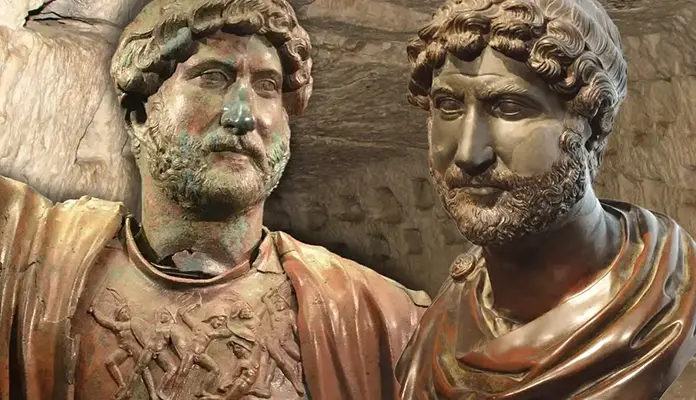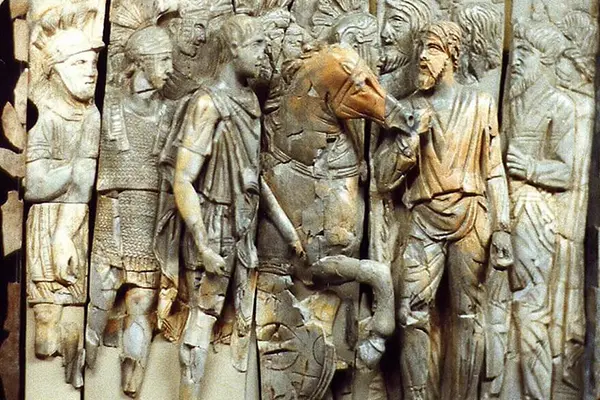Palestine. Gaza. Origin.
Palesine
This word is familiar to every inhabitant of the Earth, but only a few people know what it means, from where, when and why it appeared. Despite this, passions are boiling around him, wars are being waged and trillions of dollars are spinning.
What makes this place unique on our planet?
When and how did the very concept of Palestine appear? The territory where the events took place was then called Judea in memory of the ancient Jewish kingdom that existed here several centuries ago. The territory was under the rule of the Roman Empire, which was declining, but still powerful. The Jews did not know this and tried to free themselves from dependence, repeatedly raising uprisings and causing the Romans a lot of trouble. After the suppression of another uprising, this time led by Bar Kokhba in 135 AD, the Roman emperor punished the Jews

Hadrian renamed this area from Judea to Palestine in order to erase the memory that there was once a Jewish kingdom here. Adrian named this territory so not by chance, but in honor of the ancient enemy of the Jewish people – the Philistines, with whom the Jews had been fighting for many centuries and from whom by that time nothing remained except a part of the genome that they left to local Jews in their blood.
Let’s fix this date – the 135th year of our era. A new name appeared on the geographical map – Palestine. Its borders covered the territory of the modern Gaza Strip, Israel, the Golan Heights, the West Bank of the Jordan River, Jordan, parts of Lebanon and Syria — from Sidon on the Mediterranean coast to Damascus, in its northern part, and from Rafah to the Gulf of Aqaba in the south.
Palestine appeared, but the Palestinians, who now demand territory “from the river to the sea” appeared only 60 years ago!
Gaza
The history of Gaza goes back more than 4,000 years. The city is one of the ten oldest cities in the world. It is mentioned as a stronghold of the Egyptian pharaohs in the Land of Canaan (the territory of present-day Israel) in the XV century BC (during the reign of Thutmose III).
The Philistines lived in Gaza first, then the Nabataeans. Neither the first nor the second have anything to do with the current “Palestinians”. These were very developed peoples for that time, who gave a lot of useful things to civilization, but dissolved even before our era among other peoples.
In 332 BC, as a result of the conquests of Alexander the Great, Gaza joined the number of territories under Hellenistic auspices. All the writers of that time called the city significant and rich. By the beginning of our era, the Greeks had already become the main population of Gaza, but many Jews also lived there.
The Greeks are also not the ancestors of the “Palestinians” in any way! They are not Arabs, and the level of development is simply not comparable.
After the Greeks, Gaza again fell under the rule of Judea until the coming of the Romans, when Pompey the Great recaptured Gaza from the Jewish tsar Alexander Yanai. Under the Romans, Gaza flourished, and the emperors patronized it. The city was governed by a senate of 500 members, among whom were Greeks, Romans, Jews, Egyptians and Persians.
As we found out earlier, after the defeat of the Bar Kokhba uprising, the Romans expelled a significant number of Jews from the country and renamed the province of Judea to Palestine. Now we can state that this attempt to destroy the memory of the Jewish state has failed.
Israel exists, but the Roman Empire has sunk into oblivion.
They weren’t there and there was nowhere for them to come from! Islam emerged more than five hundred years after the appearance of Palestine.
Christianity appeared much earlier than Islam as a result of the preaching of the Apostle Philip. However, then it did not take deep roots here for many years. In 328, the disciple of Anthony the Great, Hilarion, founded a monastery in Gaza, which very successfully preached Christianity among the local population. This contributed to the establishment of the post of bishop in Gaza. Of the bishops of Gaza, Porphyry was the most famous, who successfully fought against the pagan cults of the city. During his reign, the sanctuary of the god Marna, famous throughout the Roman Empire, was destroyed in Gaza.
Later, Gaza became the center of intellectual life and literary activity; rhetoric, philosophy and poetry with a Christian orientation began to flourish here. The Gaza School of Rhetoric exhibited many rhetoricians, philosophers who sought to bring Plato’s teachings closer to Christianity, and poets who wrote imitations of Anacreon, tragedy and monody. Other arts flourished in Gaza; it was a border point and a stronghold of the cultural world. After the collapse of the Roman Empire, Gaza went to Byzantium and two hundred years later in 634-640 AD. it was conquered by the Muslim general Amr ibn al-As, and most of the inhabitants were forced to convert to Islam.

Mikhail Uvarov
We also recommend reading:
“Palestine Is a Term Invented By Zionists”, The Savage Nihilism of ‘Free Palestine’, The Occupation of Jerusalem., Jewish Refugees















Leave a Reply